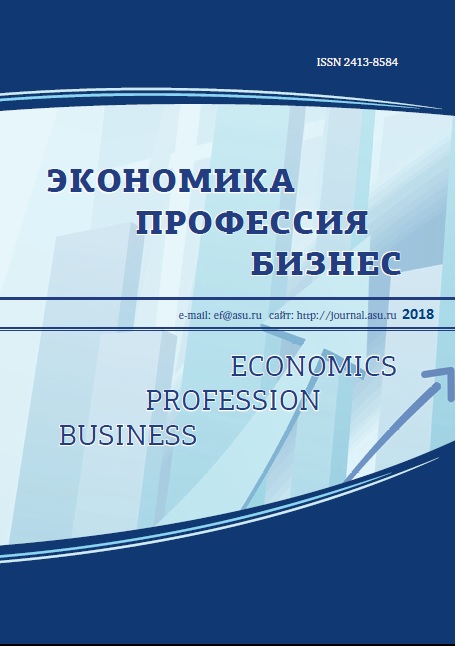ИНДИВИДУАЛЬНО-ПСИХОЛОГИЧЕСКИЕ ОСОБЕННОСТИ РАЗВИТИЯ ТВОРЧЕСКОЙ АКТИВНОСТИ ЛИЧНОСТИ ПРЕПОДАВАТЕЛЯ ПРИ РЕАЛИЗАЦИИ КОМПЕТЕНТНОСТНОГО ПОДХОДА В ПРОФЕССИОНАЛЬНОМ ОБРАЗОВАНИИ
Аннотация
Представленная статья — это теоретический обзор и практический опыт реализации компетентностного подхода в профессиональном образовании в контексте повышения качества человеческого капитала. В статье рассматриваются вопросы творческого становления личности преподавателя и исследуются внутренние и внешние социально-педагогические условия. Анализируется процесс развития творческой активности преподавателя и влияния педагогических условий на его индивидуально-психологические особенности. Раскрываются теоретические задачи построения целостного, системного понимания процесса развития творческой активности личности преподавателя при реализации компетентностного подхода в профессиональном образовании. Выделяются составляющие компоненты, этапы, уровни, условия и индивидуально-психологические особенности развития творческой активности личности преподавателя, способствующие профессиональному росту.Скачивания
Metrics
Литература
Троянская С. Л. Основы компетентностного подхода в высшем образовании : учебное пособие. Ижевск, 2016. 176 с.
Попова Н. В., Киселева Ю. В. Профессионально-педагогическая культура преподавателя вуза // Мир науки, культуры, образования. 2010. № 5. С. 206–208.
Киселева Ю. В., Попова Н. В. Педагогические условия формирования культуры учебной деятельности студентов // Мир науки, культуры, образования. 2009. № 5. С. 273–276.
Ожегов С. И., Шведова Н. Ю. Толковый словарь русского языка: 80000 слов и фразеологических выражений. М., 2011. 943 с.
Кузьмина Н. В. Методы исследования педагогической деятельности. Л., 1970. 220 с.
REFERENCES
Troyanskaya, S. L. (2016) Osnovy kompetentnostnogo podkhoda v vysshem obrazovanii : uchebnoe posobie. Izhevsk. 176 p. (in Russian).
Popova, N. V., Kiseleva, Yu.V. (2010) Professional’no pedagogicheskaya kul’tura prepodavatelya vuza / Mir nauki, kul’tury, obrazovaniya. № 5. P. 206–208. (in Russian).
Kiseleva, Yu.V., Popova, N. V. (2009) Pedagogicheskie usloviya formirovaniya kul’tury uchebnoy deyatel’nosti studentov / Mir nauki, kul’tury, obrazovaniya. № 5. P. 273–276. (in Russian)
Ozhegov, S. I., SHvedova, N. YU. (2011) Tolkovyy slovar» russkogo yazyka: 80000 slov i frazeologicheskikh vyrazheniy. Moscow. 943 p. (in Russian).
Kuz’mina, N. V. (1970) Metody issledovaniya pedagogicheskoy deyatel’nosti. Leningrad. 220 p. (in Russian).
Copyright (c) 2018 Экономика Профессия Бизнес

Это произведение доступно по лицензии Creative Commons «Attribution» («Атрибуция») 4.0 Всемирная.
Авторы, публикующиеся в данном журнале, соглашаются со следующими условиями:
a. Авторы сохраняют за собой права на авторство своей работы и предоставляют журналу право первой публикации этой работы с правом после публикации распространять работу на условиях лицензии Creative Commons Attribution License, которая позволяет другим лицам свободно распространять опубликованную работу с обязательной ссылокой на авторов оригинальной работы и оригинальную публикацию в этом журнале.
b. Авторы сохраняют право заключать отдельные договора на неэксклюзивное распространение работы в том виде, в котором она была опубликована этим журналом (например, размещать работу в электронном архиве учреждения или публиковать в составе монографии), с условием сохраниения ссылки на оригинальную публикацию в этом журнале. с. Политика журнала разрешает и поощряет размещение авторами в сети Интернет (например в институтском хранилище или на персональном сайте) рукописи работы как до ее подачи в редакцию, так и во время ее редакционной обработки, так как это способствует продуктивной научной дискуссии и положительно сказывается на оперативности и динамике цитирования статьи









